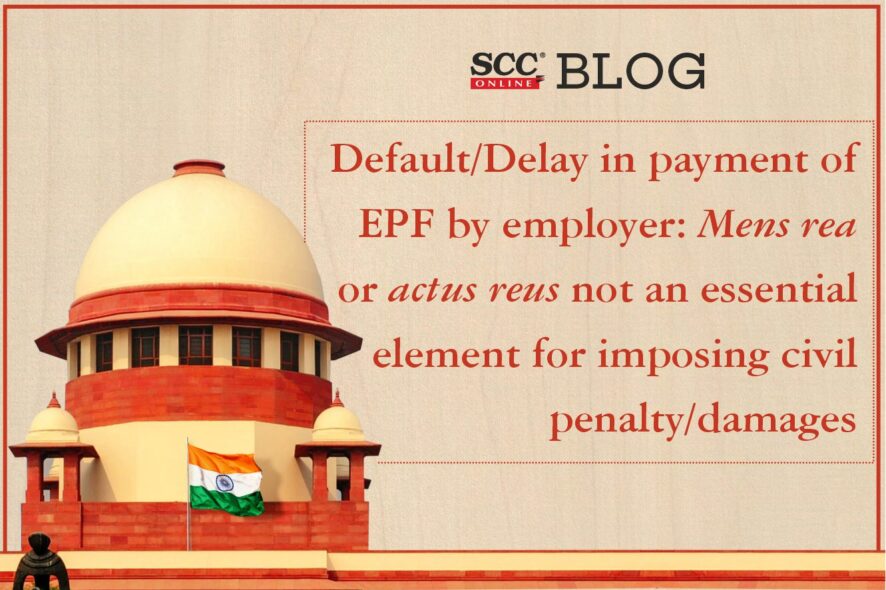Supreme Court: The bench of Ajay Rastogi and Abhay S. Oka, JJ has held that any default or delay in the payment of EPF contribution by the employer under the Employees Provident Fund & Miscellaneous Provisions Act, 1952 is a sine qua non for imposition of levy of damages under Section 14B and mens rea or actus reus is not an essential element for imposing penalty/damages for breach of civil obligations/liabilities.
In the case at hand, the establishment of the appellant(s) was covered under the provisions of the Act 1952, but still failed to comply with the same and for such non-compliance of the mandate of the Act 1952, initially the proceedings were initiated under section 7A and after adjudication was made in reference to contribution of the EPF which the appellant was under an obligation to pay and for the contravention of the provisions of the Act 1952, the appellant(s) indeed committed a breach of civil obligations/liabilities and after compliance of the procedure prescribed under the Act 1952 and for the delayed payment of EPF contribution for the period January 1975 to October 1988, after affording due opportunity of hearing as contemplated, order was passed by the competent authority directing the appellant(s) to pay damages as assessed in accordance with Section 14B of the Act 1952.
The Division Bench of Karnataka High Court under the impugned judgment held that once the default in payment of contribution is admitted, the damages as being envisaged under Section 14B of the Act 1952 are consequential and the employer is under an obligation to pay the damages for delay in payment of contribution of EPF under Section 14B of the Act 1952.
The Supreme Court was, hence, called upon what will be the effect and implementation of Section 14B of the Act 1952 and as to whether the breach of civil obligations or liabilities committed by the employer is a sine qua non for imposition of penalty/damages or the element of mens rea or actus reus is one of the essential elements has a role to play and the authority is under an obligation to examine the justification, if any, being tendered while passing the order imposing damages under the provisions of the Act 1952.
The Court relied on the three-Judge Bench ruling in Union of India v. Dharmendra Textile Processors, (2008) 13 SCC 369 while examining the scope and ambit of Section 271(1)(c) of the Income Tax Act, 1961 held that as far as the penalty inflicted under the provisions is a civil liability is concerned, mens rea or actus reus is not an essential element for imposing civil penalties
“18. The Explanations appended to Section 271(1)(c) of the IT Act entirely indicates the element of strict liability on the assessee for concealment or for giving inaccurate particulars while filing return. … Object behind enactment of Section 271(1)(c) read with Explanations indicate that the said section has been enacted to provide for a remedy for loss of revenue. The penalty under that provision is a civil liability. Wilful concealment is not an essential ingredient for attracting civil liability as is the case in the matter of prosecution under Section 276-C of the IT Act.”
Bound by the ruling in the aforementioned judgment, the Court upheld the verdict of the High Court.
[Horticulture Experiment Station Gonikoppal, Coorg v. Regional Provident Fund Organization, 2022 SCC OnLine SC 223, 23.02.2022]








Thank you for sharing such an important piece of information. Great writings.
thanks